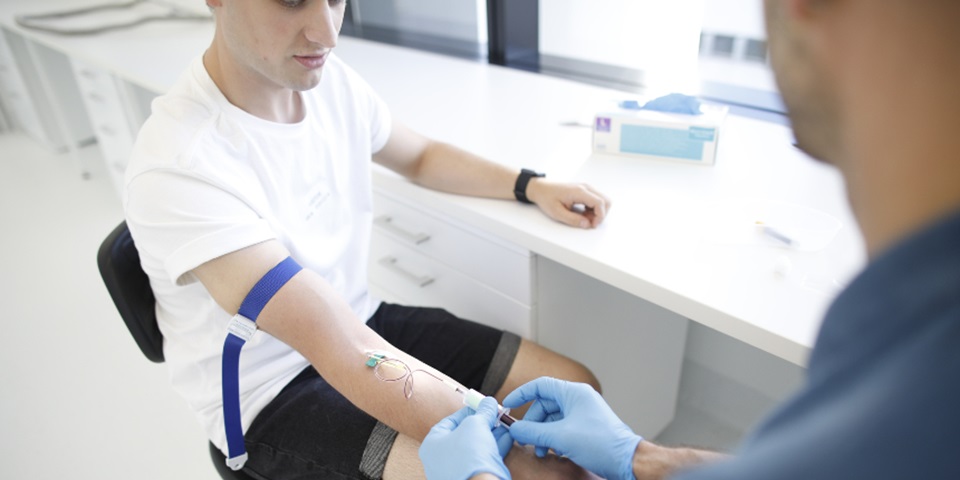News
This research model predicts who will fully recover from COVID-19

Scientists have tracked the detailed biology and biochemistry of people infected with COVID-19 to reveal exactly how our bodies respond to the disease – and have built a predictive model to identify individual chances of recovery.
The research followed the course of the disease in 215 patients for up to a year post-infection. Scientists measured a range of immune system cells and metabolic parameters in blood plasma to estimate the probabilities of unvaccinated patients making a full recovery from the disease.
The predictive model applied to each individual is available here to other researchers.
The research revealed distinct ‘systemic recovery’ profiles, with specific progression and recovery of the inflammatory, immune cell, metabolic and clinical responses to COVID-19.
The finding is the result of a three year partnership between Dr Hélène Ruffieux, Prof. Christoph Hess and colleagues at the University of Cambridge and in collaboration with The Cambridge Institute of Therapeutic Immunology and Infectious Disease-National Institute of Health Research (CITIID-NIHR) BioResource COVID-19 Collaboration and Australian National Phenome Centre (ANPC) and is published in the journal Nature, Immunology today.
Professor Jeremy Nicholson, Pro-Vice Chancellor for Health Sciences and Director of the ANPC, said the research exemplifies the type of breakthroughs possible when powerful technologies and effective clinical collaboration come together.
“We have taken advantage of very well collected and curated patient blood samples from Cambridge University’s Addenbrookes Hospital in the UK, and combined our state-of-the-art technology at the ANPC to produce a uniquely detailed individual mapping of the disease progression and outcomes,” said Professor Nicholson.
The research highlights multiple new features of the disease, which is highly variable in terms of severity and persistence.
Professor Jeremy Nicholson
“Importantly, the interplay between the immune system and the blood metabolic profiles gives deep insights into how individuals vary and how that variation impacts on long term outcomes, including Long COVID or even death.
“What is worrying, is that the long-term disease trajectory appears to be set very early during the course of infection. That means for unvaccinated patients (all the patients in the study were unvaccinated) urgent action would be needed to mitigate the long-term negative consequences of the disease.”
“Our next task is to operationalise this model by reducing it down to the most critical parameters and ones that can be measured rapidly ideally using only one analytical tool, and that is what we are working on now,” said Professor Nicholson.
Professor Julien Wist, Deputy Director of the ANPC, further explained the research.
“The model emphasises the importance of the different types of immune cell numbers and specific amino acid and lipoproteins metabolism pathways that are disturbed as a result of the inflammatory effects of COVID-19,” said Professor Wist.
“We have published the data and the mathematical model developed with Cambridge – currently for research use only – and it is available online to anyone who wants to examine how the different parameters interact.”
Professor Peter Klinken, Chief Scientist of Western Australia, said that through international collaborations such as these with Cambridge University, the ANPC and Western Australian science continues to have an impact on the world stage in critical areas of unmet medical need.
“COVID-19 remains a global problem and here the ANPC, a WA-based national science facility working with Cambridge, has made a major contribution to understanding the complex disease process that will have new clinical translational impacts for real people,” said Professor Klinken.
COVID-19 is not the last emergent disease threat that we will face, and we are fortunate to have a defensive weapon in the form of the ANPC research facility at Murdoch University.
Professor Peter Klinken, Chief Scientist of Western Australia
This latest research is being augmented and validated by thousands of blood plasma samples collected at Harvard University, who are also working closely with the ANPC to predict Long COVID outcomes.
The Australian funding for this research comes from the WA Government, Spinnaker Health Research Foundation, the McCusker Charitable Foundation, and the Medical Research Future Fund, as well as UK Medical Research Council and National Institute of Health Research
The ANPC is part of Murdoch University’s Health Futures Institute, bringing together a multidisciplinary team of scientists and our local WA community to transform how long and how well people live, not just in Australia, but around the world.
This research supports United Nations Sustainable Development Goals 3 and 17.
For research news delivered to your inbox, sign up to our monthly newsletter.